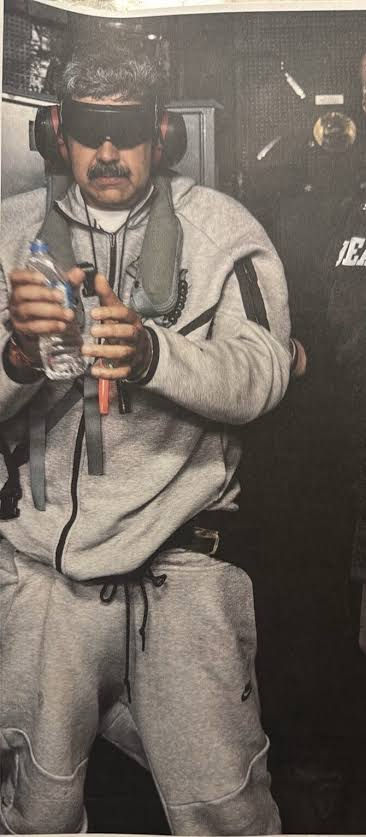What is happening in Kosovo?
- Sebastian Palacios.

- Jun 2, 2023
- 3 min read
In 2008, Kosovo declared independence from Serbia after a war with tens of thousands deaths that started in 1998, a continuation of the wars that desintegrated Yugoslavia in the early 90s. Kosovo is ethnically composed of 93% Albanians, which are mostly Muslims, whereas Serbia is mostly Slavic and Christian Orthodox.
In 1999, NATO intervened to protect these Kosovars from a campaign of ethnic cleansing orchestrated by the Serbian leader Slobodan Milosevic, who was later convicted for war crimes by the International Criminal Court. It is also true that ethnic Albanians persecuted many ethnic Serbs in Kosovo, and NATO bombings killed many civilians in Belgrade, Serbia's capital, without further repercussions.
The US-led alliance intervention caused Serbia to withdraw from Kosovo and cede the control of the region to international peacekeepers commanded by NATO forces. However, Belgrade has refused to recognize Kosovo's right to exist as an independent state and still considers it one of its provinces. Meanwhile, Kosovo's independence has been recognized by about 100 countries, including the United States and all EU countries except 5 of them, being Spain the most notorious case of those who refused (because of its problems with Catalonia).
On the other hand, Russia is a century old ally of Belgrade as both countries have Slavic culture. China does not recognize Kosovo either, because Beijing has to deal with similar independence movements in its western Muslim majority regions, NATO bombed "by mistake" its Belgrade embassy in 1999, and has a foreign policy that tends to oppose the US in order to break American hegemony in the world.
Since 2008, there has been constant tensions between Kosovo's central government, seating in the capital Priština, and the Serbs who live mainly in the north of the country and keep close ties with Belgrade. Attempts to impose more centralized policies in those areas are usually met with fierce resistance from Serbs, who use mainly the Serbian dinar in their everyday transactions and display Serbian flags on their buildings.
Currently, both Kosovo and Serbia are led by nationalist leaders who haven’t shown readiness for a compromise. In Kosovo, Albin Kurti, a former student protest leader and political prisoner in Serbia, leads the government. He is also a fierce supporter of Kosovo’s unification with Albania and is against any compromise with Serbia.
On the other hand, Serbia is led by populist President Aleksandar Vucic, who was information minister during the war in Kosovo. Vucic insists that the country won’t settle unless it gains something that can last.
Kurti’s government has been accused of not respecting the Brussels Agreement of 2013, promoted by the EU, about the implementation of self-governing municipalities for Serbs to normalize the relations between both nations. Under the agreement, “autonomous municipalities” would be created in Kosovo, but these would have to operate under the Kosovar legal system and the Kosovar police remaining the only law enforcement authority. After one decade, those promises have not turned into significant actions, which has fueled growing tensions over time.
The direct source of the latest clashes dates from November last year. Back then, four mayors in Northern Kosovo belonging to the Serbian List party, along with local Serbian judges and some 600 police officers, collectively resigned in protest against a law that would force Serbs living there to purchase car license plates issued by Kosovo. Because of this vacuum of power that followed the resignations, the government in Priština announced new elections to be held in April 2023.
But Serbian President Vucic called on Serbs in the region to boycott the elections, saying that they should no longer tolerate a foreign “occupation.” This boycott left the ethnically Albanian candidates to run unchallenged. As a result, only 3.5% of the adult population participated in these elections, prompting claims that these new ethnic Albanian mayors were illegitimate.
When the Kosovar Albanian mayors were ready to take office in the last week of May, Serbs protested in front of municipal buildings to stop them, clashing with NATO soldiers and the local Kosovo police. During those fights, 30 Italian and Hungarian NATO soldiers were badly hurt, with injuries including fractures and burns from explosive incendiary devices.
As a response, Serbia has put thousands of soldiers at its border with Kosovo, "ready to enter at any moment if needed". Following that, the US, NATO and EU have strongly criticized their Kosovo ally, accusing Priština of "putting more fuel to the fire". The US has sanctioned Kosovo with some economic sanctions and excluded the country from participating in the coming NATO military exercises.
The situation in Kosovo resembles very much the one in Ukraine: An ethnic minority backed by Russia and China accuses the central government of a country backed by the western world of oppression and discrimination, resulting in territorial tensions, and a possible war. Definitely, Kosovo is one of the many geopolitical hotspots that the world will need to deal with in order to avoid a major global breakdown.












Comments